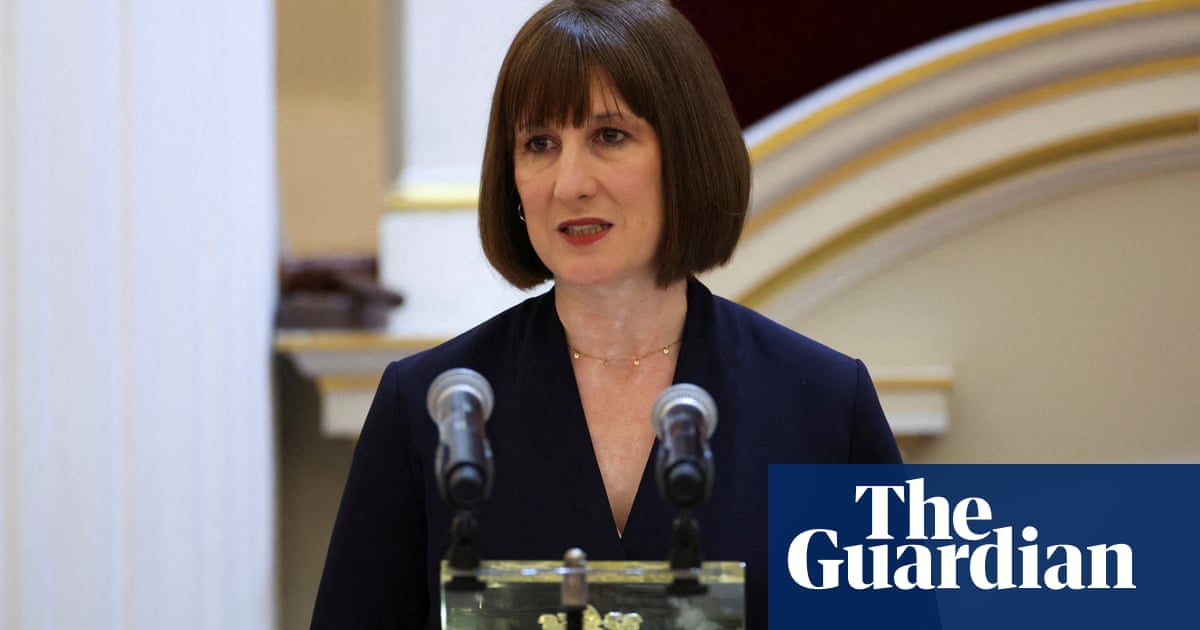Keir Starmer has raised concerns with the Chinese president, Xi Jinping, about sanctions on British MPs and the deterioration of the British citizen and Hong Kong democracy activist Jimmy Lai, in a meeting at the G20 summit in Rio.
The UK prime minister promised a “strong UK-China relationship” and said the pair had agreed there should be no more “surprises” between the two countries. He said he was keen for a full meeting with his Chinese counterpart, Li Qiang, in Beijing or London as soon as possible.
Chinese officials bundled British journalists out of the meeting when Starmer raised the plight of Lai, who is being held in Hong Kong.
In the first encounter between the Chinese president and a British prime minister for six years, Starmer also raised the issue of human rights, including sanctions on a number of Conservative MPs such as the former security minister Tom Tugendhat, the Commons deputy speaker, Nus Ghani, and the former Conservative leader Iain Duncan Smith.
Starmer said the pair had acknowledged they wanted “relations to be consistent, durable, respectful and, as we have agreed, avoid surprises where possible”.
“A strong UK-China relationship is important for both of our countries and for the broader international community,” he said at the top of the meeting. “The UK will be a predictable, consistent, sovereign actor committed to the rule of law.”
He proposed a full bilateral meeting with Premier Li in Beijing or London, and for the chancellor, Rachel Reeves, to meet her counterpart, He Lifeng, which is expected to take place in Beijing in January.
“I’m keen that my chancellor should meet with Vice-Premier He for the upcoming economic financial dialogue early next year to explore more investment projects and a more level playing field to help our businesses,” Starmer said.
“I’m very pleased that my foreign secretary and foreign minister Wang met recently to discuss respective concerns including on human rights and parliamentary sanctions, Taiwan, the South China Sea and our shared interest in Hong Kong. We are concerned by reports of Jimmy Lai’s deterioration.”
In a marked change of tone from previous years, Xi said Starmer was “fixing the foundations” of the UK economy, echoing the prime minister’s own slogan. He said the pair would “break new ground” in the relationship.
“The world has entered a new period marked by turbulence and transformation,” Xi said in the meeting. “The new UK government is working to fix the foundations of the economy and rebuild Britain and has set the vision of Britain reconnected. And China is further deepening reform across the board to advance Chinese modernisation.”
Tugendhat and the former foreign affairs committee chair Alicia Kearns, both prominent Tory critics of China, had called on Starmer to use the meeting to raise with Xi the plight of UK nationals including Lai, the pro-democracy media owner detained and tried in Hong Kong.
No British prime minister has met Xi since Theresa May visited Beijing in 2018 in the midst of a trade push during Brexit negotiations, though Boris Johnson spoke to the Chinese president during the pandemic.
Since then, relations have significantly cooled because of cyber threats, a human rights crackdown in Hong Kong and the sanctions against MPs.
Rishi Sunak attempted to renew relations at the G20 summit in 2022 where a bilateral meeting was planned but it was cancelled owing to events in Ukraine. Conservative leaders have toyed with designating China as a threat to British security – stronger language than the US had used.
The foreign secretary, David Lammy, visited China last month in the first signal that the new Labour government saw a renewal of better ties as a diplomatic priority. Reeves, who is understood to be taking a leading role in pursuing new economic opportunities with China, will head to Beijing in January.
Starmer and Reeves have been pursuing a thawing of relations with the world’s second largest economy on pragmatic grounds, suggesting that the UK cannot achieve its growth ambitions without better terms with China.

.png) 1 month ago
12
1 month ago
12













































